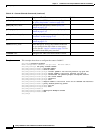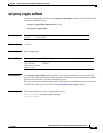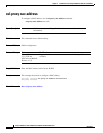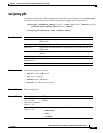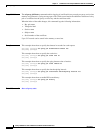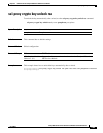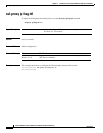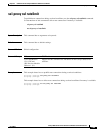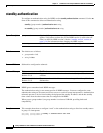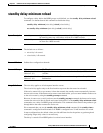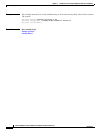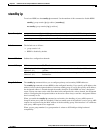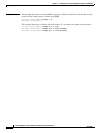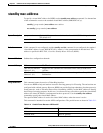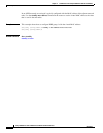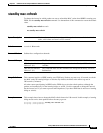
2-96
Catalyst 6500 Series Switch SSL Services Module Command Reference
OL-9105-01
Chapter2 Commands for the Catalyst 6500 Series SSL Services Module
standby authentication
standby authentication
To configure an authentication string for HSRP, use the standby authentication command. Use the no
form of this command to delete an authentication string.
standby [group-number] authentication text string
no standby [group-number] authentication text string
Syntax Description
Defaults The defaults are as follows:
• group-number is 0.
• string is cisco.
Command Modes Subinterface configuration submode
Command History
Usage Guidelines HSRP ignores unauthenticated HSRP messages.
The authentication string is sent unencrypted in all HSRP messages. You must configure the same
authentication string on all routers and access servers on a cable to ensure interoperation. Authentication
mismatch prevents a device from learning the designated hot standby IP address and the hot standby
timer values from the other routers that are configured with HSRP.
When you use group number 0, no group number is written to NVRAM, providing backward
compatibility.
Examples This example shows how to configure “word” as the authentication string to allow hot standby routers
in group 1 to interoperate:
ssl-proxy (config-subif)# standby 1 authentication text word
ssl-proxy (config-subif)#
group-number (Optional) Group number on the interface to which this authentication string
applies. Valid values are from 0 to 255 for HSRP version 1; valid values are
from 0 to 4095 for HSRP version 2. See the “standby version” section on
page 2-116 for information about changing the HSRP version.
text string Specifies the authentication string, which can be up to eight characters.
Release Modification
SSL Services Module
Release 2.1(1)
Support for this command was introduced on the Catalyst 6500 series
switches.
SSL Services Module
Release 3.1(1)
The command mode for this command was changed from Proxy-VLAN to
Subinterface.



